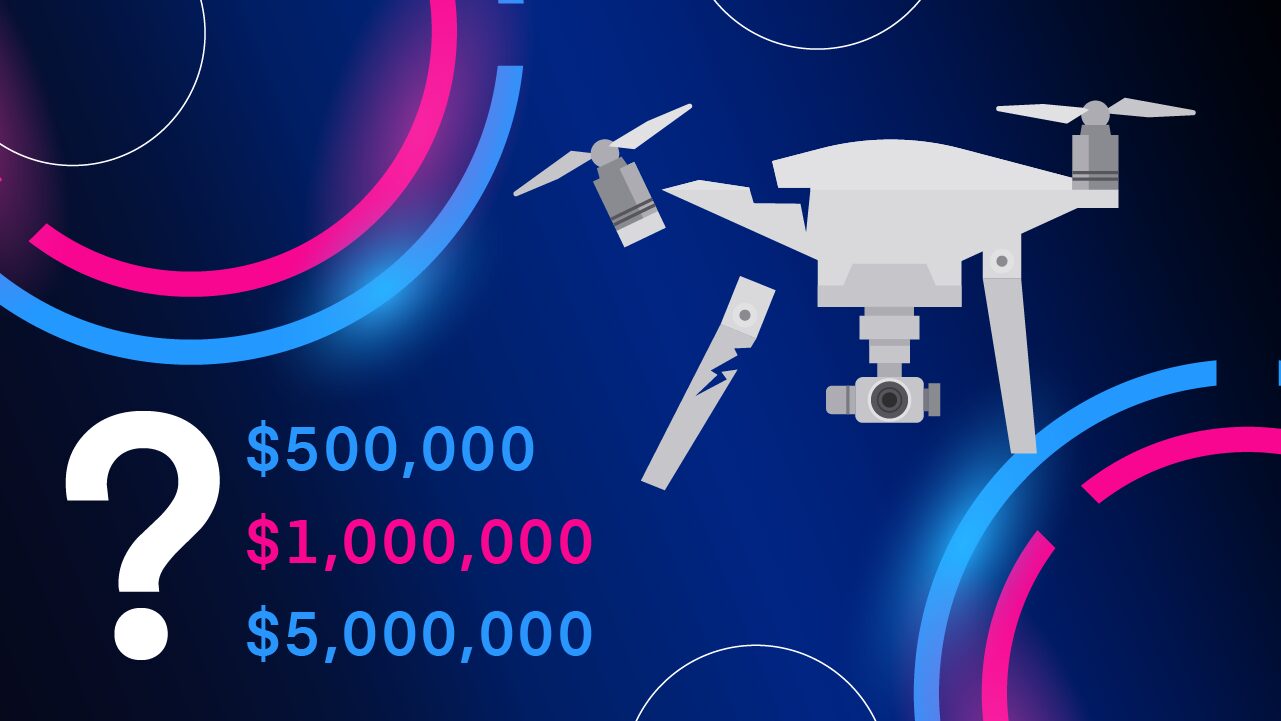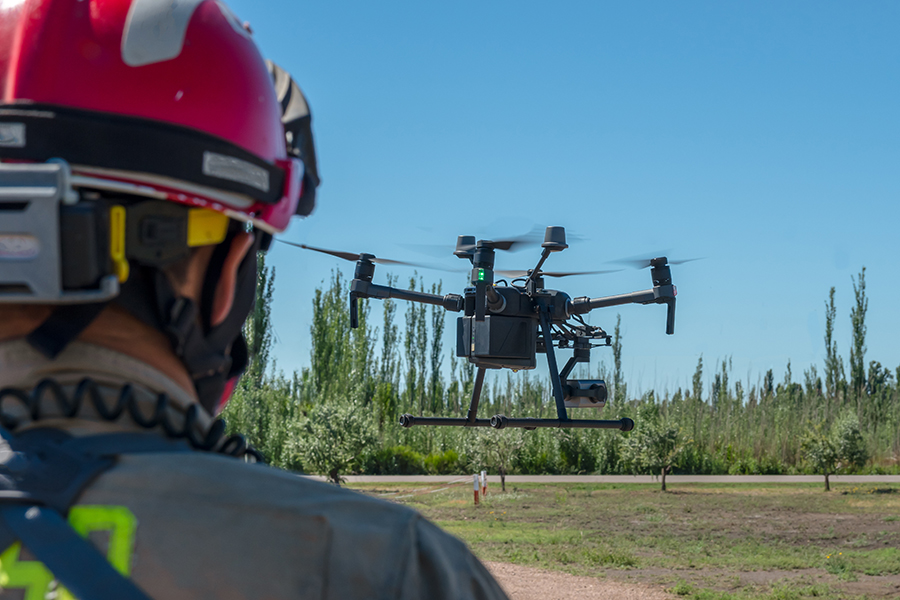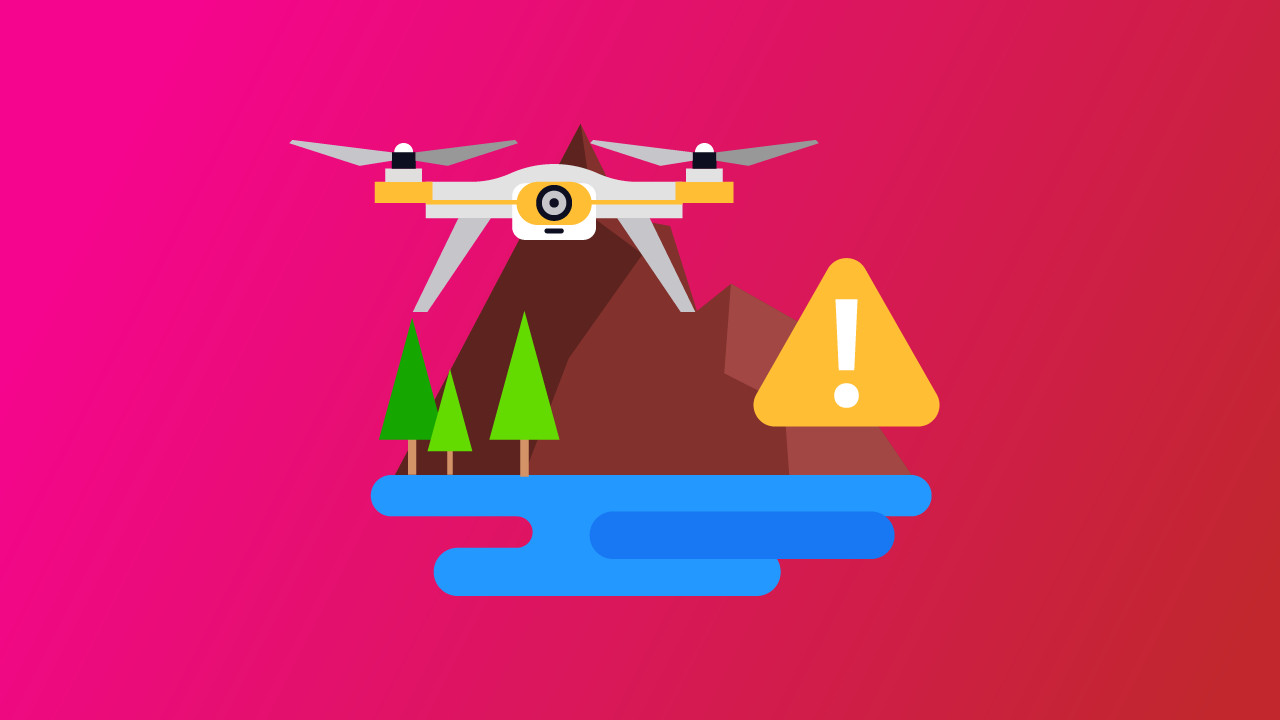There is a wide range of drone insurance products and services out there.
What exactly do you need your insurance to cover?
The answer depends on what type of drone you fly and how you use it.
In this article, we’ll help you decide which coverage to apply for when getting drone insurance.
Key Takeaways
- Drone insurance can cover damage to the drone (hull) and persons or property (liability).
- You can customize insurance coverage to meet specific drone equipment and usage needs.
- Drone insurance is not federally mandated. However, some states require it for commercial operators.
The Basics of Drone Insurance
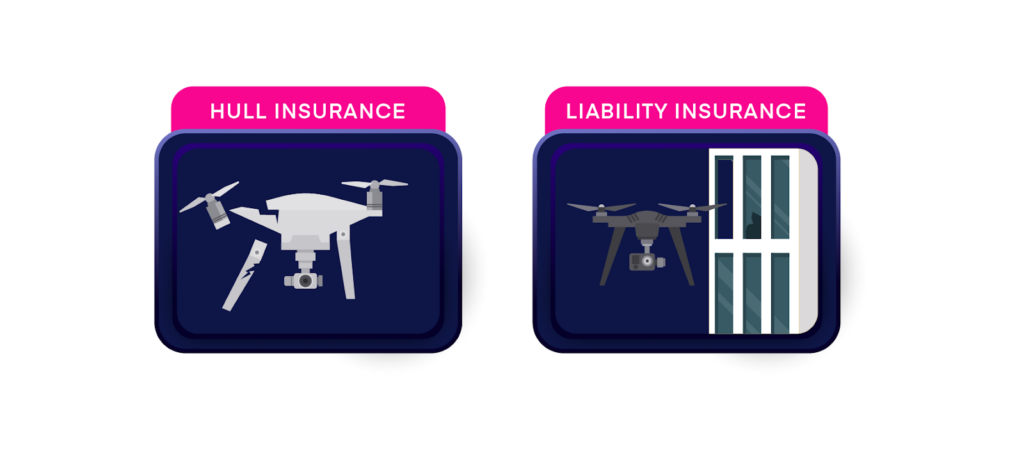
Drone insurance is similar to the insurance for your car or house. Put simply, you pay for the policy, and it covers any financial burden should something unexpected happen. In drone flight, this typically means you accidentally crashed your drone.
There are two broad classifications of drone insurance – hull insurance and liability insurance.
Hull insurance applies to the cost of the drone itself should it get damaged. Drone insurance coverage can also extend to associated payload or ground equipment. Liability insurance can cover the cost of property damage or personal injury in the case of a drone-related accident.
When signing up for drone insurance, you typically have the choice of hull insurance, liability insurance, or both. The type of insurance you need largely depends on how risky your planned operations are.
What Is the Coverage of Drone Insurance?
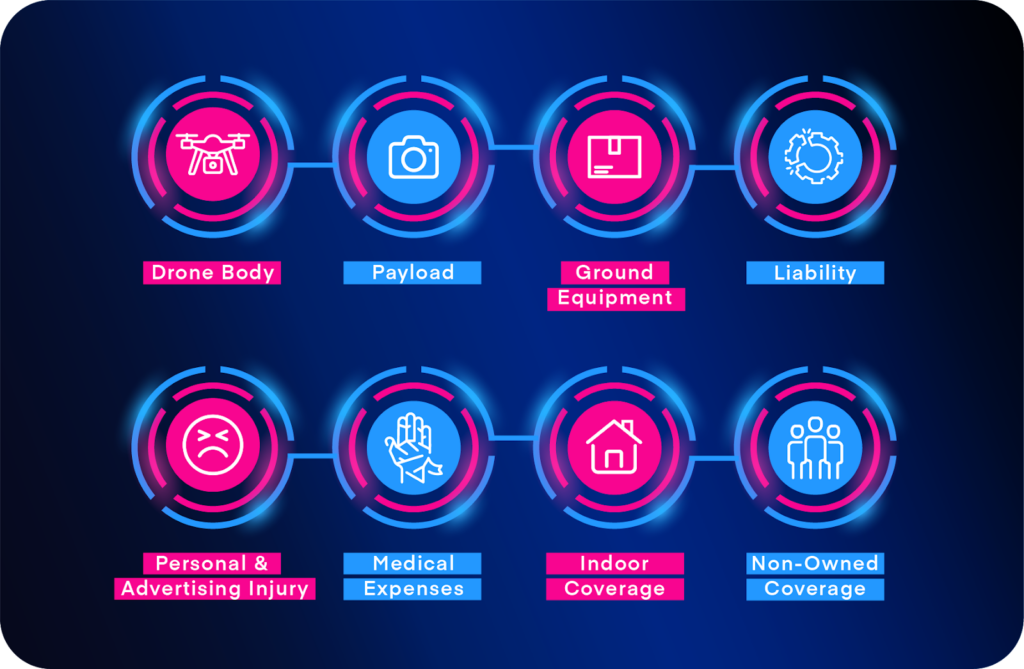
What exactly are the circumstances that a drone insurance policy will cover? Coverage can vary widely from one policy to another, so this list may not perfectly apply to your case. This is just a sample of things insurance can cover. When in doubt, it is always prudent to ask your insurance provider.
- Drone Body
When you get hull insurance, the most basic policy will cover at least the cost of replacing your drone. If repairs are possible, insurance might cover the cost to fix the drone rather than replace it. Most policies cover drones that cost up to a few thousand dollars. However, higher-end drones near the $20,000 mark may need more specialized insurance.
- Payload
Do you use a fancy payload like a high-end camera, thermal camera, or LiDAR sensor? If so, you should consider getting payload insurance. Payload insurance can cover the cost of repairing or replacing your damaged equipment.
- Ground Equipment
Although uncommon, you can extend the insurance coverage to include ground equipment. This does not just refer to remote controllers. Those who do drone mapping may need to use fairly expensive ground stations. You can also cover incidental accessories like cameras or handheld GPS devices.
- Liability
Liability is a catch-all term that covers damage to another person’s property or assets caused by a drone. It also covers bodily injury. Liability coverage depends on your preference or the nature of your drone operations.
- Personal and Advertising Injury, Including Privacy Claims
Does your drone work typically result in published material? If so, you might want to add personal and advertising injury coverage. It protects you if you accidentally publish private, libelous, or slanderous content. Again, the amount covered varies based on the nature of your drone operations.
- Medical Expenses
Should your drone cause bodily injury, your policy can partially or completely cover the medical expenses. You can adjust the amount of medical coverage, with higher coverage provided by higher premiums.
- Indoor Coverage
Some drone insurance policies will cover indoor operations. Ask your insurance provider for details.
- Non-Owned Coverage
You can get drone insurance even if you fly a drone owned by someone else. Note that the policy might not cover some items if the insurance holder is not operating the drone.
How Much Liability Coverage Do You Need?
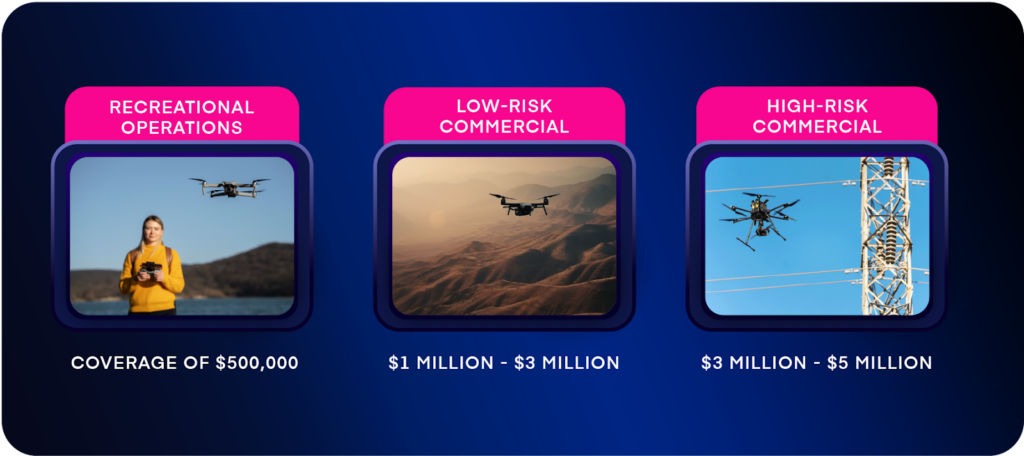
If you have several drone insurance coverage options, which should you pick? The answer to this depends largely on how you use your drone or the nature of your planned drone operations.
- Recreational Operations
Recreational drone pilots do not necessarily need to get drone insurance. But for those who do, minimal liability coverage of about $500,000 should work well. This assumes you will fly your drone in a wide-open space away from crowds and critical infrastructure. Low-coverage drone insurance should be very cheap if you get it on a per-use basis.
- Low-risk Commercial
Commercial drone operations will likely need some sort of drone insurance. If your operations are not very risky, coverage ranging from $1 million to $3 million should be fine.
What are low-risk commercial operations? Examples include event photography, real estate photography, agricultural surveys, and drone mapping in remote or barren areas. Such policies are cheaper to buy annually, particularly if you operate drones often.
- High-risk Commercial
Some commercial drone uses are inherently riskier. These include inspection of critical infrastructure such as power lines or communications towers, drone mapping of dense urban areas, emergency response, news coverage, or event photography in crowded places.
In such cases, the recommended liability coverage is $3 million to $5 million. You can even increase it for high-level drone operations. Note that annual premiums in this range can be a few thousand dollars.
When Is Drone Insurance Necessary?
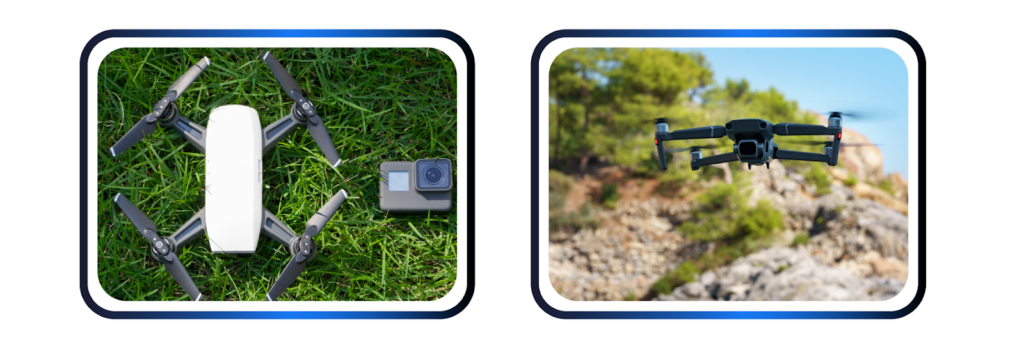
The FAA does not compel drone pilots to get insurance, whether they fly drones recreationally or commercially. However, many territories in the USA require drone insurance for commercial operations. Two examples are San Diego County in California and Boulder County in Colorado. Some state parks only allow insured pilots to fly drones, such as in Arkansas or Maine.
In any case, drone insurance is prudent if you use your drone commercially.
Conclusion
These days, getting insurance for anything valuable that you own has become the norm. That includes your drone.
If you use your drone a lot or earn money from it in any way, having some form of insurance for it makes sense. The costs may be painful in the short term, but your future self will thank you for it.
